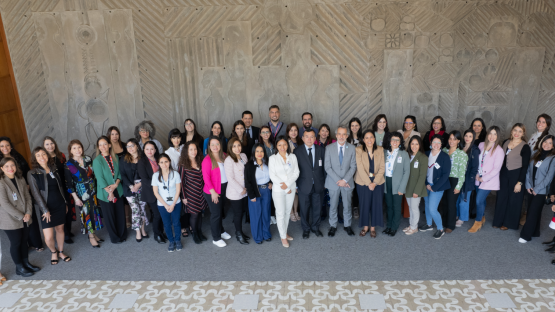For many women around the world, the pursuit of a professional career can be filled with challenges, but for those in STEM these can often be even more daunting, especially in traditionally male-dominated fields like the nuclear sector. To support the professional development of young women, in October 2024 the IAEA organized a week-long pilot school of leadership for young female professionals in Latin America and the Caribbean, under the umbrella of an agreement to support nuclear sciences and technology in the region, ARCAL.
“The school responds directly to a demand by ARCAL State Parties to empower the next generation of female professionals within the sector and aims to serve as a catalyst for more gender equality,” Raquel Aledo, programme management officer at the IAEA said. "The syllabus was formulated to equip participants with tools to help them thrive in environments where women are underrepresented and to give them the confidence to make their work more visible.”
During the 21-25 October training, organized with the support of the Chilean Nuclear Energy Commission (CCHEN) in Santiago, 26 young nuclear science and technology professionals from 15 Latin American and Caribbean countries had a chance to hone their leadership skills in various contexts, including the promotion of safety in complex nuclear and radiological environments during both routine and unexpected situations, and to expand their technical skills through site visits.
“The IAEA training was an opportunity to hear from women from other countries, working in different areas. We are all unique, so it’s important to share experiences,” said Georgia Joana, a physicist and inspector at the Brazilian National Nuclear Energy Commission (CNEN). “I was happy to develop soft skills, like public speaking, which we don’t have much time to think about in our technical work,” she added.






